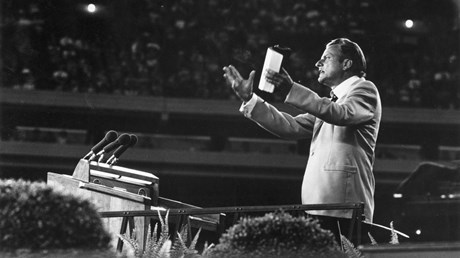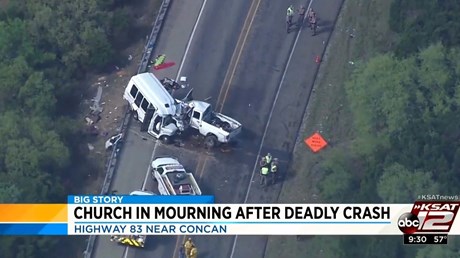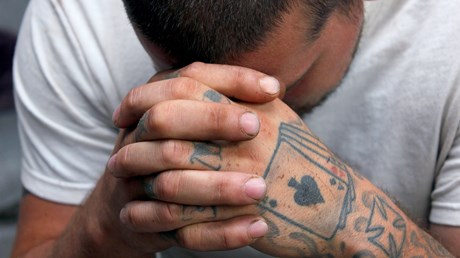Friday 31 March 2017
Psalm 14:1
from
https://www.biblegateway.com/passage/?version=NIV&search=Psalm%2014:1
The Other Billy Graham Rules
They have nothing to do with sex.

During his 20 years as a manager in the Christian music business, Darren Tyler followed a version of what’s known in evangelical circles as the “Billy Graham Rule.”
He—and members of the bands he managed—would never eat, travel, or otherwise spend time alone with someone of the opposite sex while on the road.
It’s a boundary that just makes sense, says Tyler. And it’s one he follows while traveling for his current role as pastor of Conduit Church in Franklin, Tennessee.
“My wife never has to worry about what I am doing,” he says.
The Billy Graham Rule has taken a bit of beating recently, after a Washington Postprofile revealed that Vice President Mike Pence follows a version of the rule. It’s set off a fierce debate over whether the rule safeguards marriages from adultery, harms women in the church, or is just plain sexist.
But most reports have neglected to mention that there’s not just one Billy Graham rule. There are four. They deal with money, sex, power, and lies and were part of something known as the Modesto Manifesto. Set up in the 1940s, the rules were meant to keep Graham and his organization away from the pitfalls that have taken down American celebrity preachers since the days of Henry Ward Beecher and Aimee Semple McPherson.
Crafting a strategy for integrity
It’s hard to conceive of Billy Graham as a rock star these days, now that he’s the beloved patron saint of American preachers. But in 1948, he was young, handsome, charismatic, and about to become a household name, attracting crowds by the tens of thousands. That’s been a recipe for disaster for more than a few celebrity preachers.
And in those days, traveling evangelists were looked ...
from
http://feeds.christianitytoday.com/~r/christianitytoday/ctmag/~3/9cmT8lR-uMI/other-billy-graham-rules.html
The Fear of Dying
from
http://www.patheos.com/blogs/tippling/2017/03/31/the-fear-of-dying/
Counting the Cost: Was Murdered UN Congo Worker a Martyr?
Michael Sharp was a United Nations employee, but also a Christian.

This week, the Democratic Republic of Congo (DRC) confirmed that Michael Sharp, a Mennonite and United Nationals official investigating violence in the Central African country, has been killed.
Less clear is whether the 34-year-old should be counted as a martyr.
Sharp, colleague Zaida Catalan, and their interpreter were found in a grave outside Kananga, where they were looking into potential human rights violations. A graduate of Eastern Mennonite University’s Center for Justice and Peacebuilding, Sharp worked with the Congolese Protestant Council of Churches to help refugees and to encourage armed groups to lay down their weapons.
“On behalf of the Congolese diaspora community in the United States that I represent, I am saddened by this news,” stated Fidele Lumeya, executive director of the Congolese American Council for Peace and Development. “Michael took a most perilous mission to investigate the ongoing killings, showing deep respect for the dignity of humankind and the women and children of Central Congo. His work in the Congo is a legacy of who we are as human beings, as Mennonites, and Christian disciples.”
Sharp’s death is an example of “today’s crop of new martyrs,” who “generally aren’t being killed for reasons directly related to their religious beliefs, but rather the values and humanitarian stances those beliefs inspire,” according to Crux.
That makes them hard to count. Are the eight aid workers and journalists who were killed by villagers in Guinea while trying to raise Ebola awareness martyrs? How about the 115 who died in a church hostel collapse in Nigeria? The gruesome ISIS beheading of American Catholic journalist James Foley led his ...
from
http://feeds.christianitytoday.com/~r/christianitytoday/ctmag/~3/242ZnuyGPyY/murdered-un-congo-worker-martyr-michael-sharp-drc-emu.html
Thursday 30 March 2017
Texas Church Mourns 13 Seniors Killed in Choir Bus Crash
Pastor: ‘When we’re absent from the body, we’re present with the Lord.’

NEW BRAUNFELS, Texas (BP) -- "Death could not hold Him," proclaims the website of First Baptist Church of New Braunfels, Texas. The bright Easter message of Jesus' resurrection sits just above the tragic announcement of 13 members who died Wednesday (March 29) in a bus accident.
“When we’re absent from the body, we're present with the Lord," First Baptist New Braunfels pastor Brad McLean told San Antonio CBS affiliate KENS5 News hours after the crash. "We know that their families are going to be hurting and our church family is going to be hurting."
McLean cancelled Wednesday evening services and opened the sanctuary for prayer after the members of the senior choir were killed when a pickup truck crossed the center lane in a curve, state troopers said, and struck the bus head-on on Highway 83 in Concan around 2 p.m. The bus driver and one church bus passenger survived and are hospitalized.
"We're just trying to be very respectful and provide a place for our church family to come together, to cry with other," McLean said of the evening prayer gathering, "you know, to hug each other and pray with each other."
The senior choir members, all between the ages of 61 and 87, were returning from an annual retreat at Alto Frio Baptist Encampment in Leakey when the accident occurred on Highway 83 near Garner State Park in Concan. All but one of the fatalities occurred at the site of the crash; the other, hours later at the hospital.
Many local and area community members and church congregants gathered at the church last night, First Baptist student pastor Michael Van Gorp told Baptist Press.
"It was a great moment to be able to go through that moment with fellow believers, ...
from
http://feeds.christianitytoday.com/~r/christianitytoday/ctmag/~3/10Gf27dk7tc/texas-church-mourns-13-seniors-killed-in-choir-bus-crash.html
Prison Fellowship Fights the 48,000 Forces Keeping Former Inmates from a Second Chance
Broad coalition launches awareness month to dismantle ‘second prison’ beyond bars.

As Americans across the political spectrum work to reform the criminal justice system and reduce the record-high prison population, another issue has resulted from over-incarceration: how to reintegrate the 65 million people—nearly 1 in 4 adults—with a criminal record.
To tackle the “second prison” beyond bars, Prison Fellowship has convened an unusual coalition—ranging from the National Association for the Advancement of Colored People and the American Civil Liberties Union to The Heritage Foundation—to address the social stigma around the formerly incarcerated and to launch “Second Chance Month.”
A bipartisan pair of senators (Rob Portman, R-Ohio, and Amy Klobuchar, D-Minnesota) plan to introduce a bill to officially recognize the April observance.
Christians involved in criminal justice reform say churches should recognize the significance of second chances, redemption, and human dignity.
“We incarcerate a lot of people, and 95 percent of them are going to be released at some point into our communities,” said John Malcolm, director of a Heritage Foundation center for legal and judicial studies. “At that point, we all have an interest in helping them becoming law-abiding citizens.”
Instead, many of the restrictions around life after prison work against former inmates’ efforts at a better life. The formerly incarcerated almost always have a harder time finding housing or a job. Depending on their state or the nature of their crime, they may also no longer be eligible for benefits such as public housing, welfare, and food stamps. Prison Fellowship has documented more than 48,000 social stigmas and legal restrictions that can follow a prison sentence. ...
from
http://feeds.christianitytoday.com/~r/christianitytoday/ctmag/~3/Kks3ncF9VV4/prison-fellowship-second-chance-month-criminal-justice-refo.html
The Invisible Americans in ‘Served Like a Girl’ and ‘The Work’
New documentaries profile the easily overlooked experiences of female veterans and male convicts.

Americans increasingly live in bubbles and echo chambers where our news, our social media feeds, and even our churches tailor their messages so precisely that we rarely see or hear those whose lives and beliefs differ drastically from our own. No media form is immune from the audience’s tendency to gravitate toward stories that confirm rather than challenge its preconceived notions—but documentary films do seem singularly equpped to take us out of our comfort zones. The extra effort it takes to get up and leave a theater as opposed to turning off a DVD or scrolling past a Facebook feed is often enough of a difference to make skeptical viewers stick with stories that don’t immediately strike them as worth their time.
Cases in point: Neither Served Like a Girl nor The Work generated much enthusiasm for me based on their catalog descriptions alone. They turned out, however, to be the two most engaging and inspiring films at March’s SXSW Film Festival.
Lysa Heslov’s film profiles five current and former participants in the Ms. Veteran America competition. (Don’t call it a “pageant,” or you’ll owe the women ten push ups.) If you are ambivalent about such competitions, don’t worry—so are some of the participants...at least at first. But the show’s primary goal—to raise awareness of and funds for America’s 55,000 homeless female veterans—resonates strongly with these service women committed to the creed that a soldier does not leave behind a fallen comrade.
It’s fairly obvious that the film, like the competition, is designed to challenge stereotypical media images of beauty. The contestants represent a variety of ethnicities and body types. ...
from
http://feeds.christianitytoday.com/~r/christianitytoday/ctmag/~3/Kr3s6sKz5SA/invisible-americans-of-served-like-girl-and-work.html
How 1,000 Pastors Pursue Racial Reconciliation
Personal relationships and prayer preferred over preaching and protests.

Nine out of 10 American pastors say they recently encouraged racial reconciliation. Their favorite method: Breaking bread with someone of another ethnicity.
A new survey of 1,000 Protestant senior pastors by LifeWay Research examines how they address race beyond the pulpit, as well as whether their congregations demand such sermons.
Almost three-quarters (72%) of pastors have shared a meal with a diverse small group of people (less than 10) in the past month. That includes 44 percent who say they’ve had such a meal in the past week.
The proportion is similar among white pastors, 42 percent of whom say they’ve had a meal in the past week with a diverse group. Such meals are more common among African-American pastors (52%) and pastors of other ethnicities (60%).
The proportion varies by denomination. Pentecostal (50%), Methodist (48%), and Baptist (46%) pastors were more likely to have shared a meal with a diverse group in the past week, while Presbyterian/Reformed pastors (34%) were less likely.
“Most pastors appear to be taking a leadership role in encouraging racial reconciliation,” said Scott McConnell, executive director of the Nashville-based research organization. “Nine in 10 pastors say they recently have done something to encourage racial reconciliation.
“A majority have been socializing with other races and ethnicities and have led prayer on racial reconciliation,” he noted. “But less than a third have addressed economic inequity or publicly lamented injustice.” [See chart]
Nine in 10 Protestant congregations would welcome a sermon on racial reconciliation, according to their senior pastors (57% strongly agree, 33% somewhat agree). Seven percent disagree, while three ...
from
http://feeds.christianitytoday.com/~r/christianitytoday/ctmag/~3/R_btfciIfPk/how-1000-pastors-pursue-racial-reconciliation-lifeway.html
How 1,000 Pastors Pursue Racial Reconciliation
Personal relationships and prayer preferred over preaching and protests.

Nine out of 10 American pastors say they recently encouraged racial reconciliation. Their favorite method: Breaking bread with someone of another ethnicity.
A new survey of 1,000 Protestant senior pastors by LifeWay Research examines how they address race beyond the pulpit, as well as whether their congregations demand such sermons.
Almost three-quarters (72%) of pastors have shared a meal with a diverse small group of people (less than 10) in the past month. That includes 44 percent who say they’ve had such a meal in the past week.
The proportion is similar among white pastors, 42 percent of whom say they’ve had a meal in the past week with a diverse group. Such meals are more common among African-American pastors (52%) and pastors of other ethnicities (60%).
The proportion varies by denomination. Pentecostal (50%), Methodist (48%), and Baptist (46%) pastors were more likely to have shared a meal with a diverse group in the past week, while Presbyterian/Reformed pastors (34%) were less likely.
“Most pastors appear to be taking a leadership role in encouraging racial reconciliation,” said Scott McConnell, executive director of the Nashville-based research organization. “Nine in 10 pastors say they recently have done something to encourage racial reconciliation.
“A majority have been socializing with other races and ethnicities and have led prayer on racial reconciliation,” he noted. “But less than a third have addressed economic inequity or publicly lamented injustice.” [See chart]
Nine in 10 Protestant congregations would welcome a sermon on racial reconciliation, according to their senior pastors (57% strongly agree, 33% somewhat agree). Seven percent disagree, while three ...
from
http://feeds.christianitytoday.com/~r/christianitytoday/ctmag/~3/WkfT82HbVSU/how-1000-pastors-pursue-racial-reconciliation.html